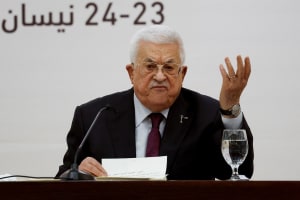US officials try to minimize disagreement between Netanyahu, Biden
Following criticism, U.S. officials appear interested in smoothing over differences

Many political commentators are speculating about a growing rift between the U.S. administration and Israel following critical remarks by U.S. President Joe Biden about Israel’s judicial reform process, as well as his statement that he would not invite Israeli Prime Minister Benjamin Netanyahu to the White House “in the near term.”
Biden issued his criticism about Israel reforming its judiciary even after Netanyahu called to pause the legislation to allow for internal negotiations.
“Like many strong supporters of Israel, I am very concerned,” Biden told reporters on Tuesday. “I am concerned that they get this straight. They cannot continue down this road. I have sort of made that clear.”
When asked if he would invite Netanyahu to the White House, Biden responded by saying, “No, not in the near term.”
Netanyahu responded soon after in a social media post, acknowledging Israel’s friendship with the U.S. but making it clear that Israel would determine its own course.
“I have known President Biden for over 40 years, and I appreciate his longstanding commitment to Israel. The alliance between Israel and the United States is unbreakable and always overcomes the occasional differences between us,” he wrote. “Israel is a sovereign country which makes its decisions by the will of its people and not based on pressures from abroad, including from the best of friends.”
Since Biden’s and Netanyahu’s remarks, several U.S. officials have tried to minimize the appearance of a rift between them.
U.S. National Security Council spokesperson John Kirby said on Wednesday that the Biden administration appreciated Netanyahu’s virtual address of the U.S. State Department’s Summit for Democracy, in which he said that Israel is trying to “strengthen democracy” and “to enshrine civil rights with an agreed national consensus.”
However, Netanyahu also pushed back against his critics, noting that, just as those who opposed his economic reforms two decades ago were wrong, those opposing him now are also misguided.
Nevertheless, he indicated he would work “to achieve a broad national consensus.”
Kirby said the U.S. administration would like to see decisions made “that are in keeping with a consensus” and are “done with the broadest possible base of public support.”
He also said that Israel “is a democracy and a sovereign state, of course – and sovereign states make sovereign decisions" and allegedly agreed with Netanyahu's statements at the Democracy Summit.
Kirby referred to Netanyahu and Biden’s more than 40-year relationship, saying that friends don’t always agree.
“The great thing about a deep friendship is you can be that candid with one another,” he said.
U.S. State Department spokesperson Vedant Patel also tried to minimize the appearance of a rift between the two nations, saying to reporters in Washington, “Our commitment to Israel is ironclad and steadfast, and that will continue to be the case.”
“Israel is a key and important partner as it relates to not just the region but our efforts across the world,” he said.

The All Israel News Staff is a team of journalists in Israel.














